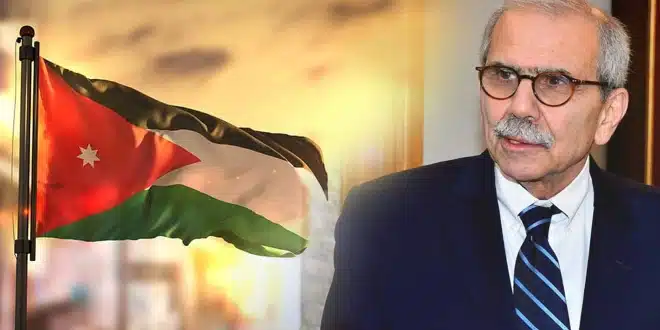During an official visit to Amman on Tuesday, Lebanese Prime Minister Nawaf Salam warned that Israel risks increasing international isolation as a result of its policies and military operations in the West Bank and Gaza. His remarks came against the backdrop of mounting regional tensions and renewed debates over security and sovereignty in Lebanon.
Jordan Expresses Backing for Lebanon’s Sovereignty
Following talks with Jordanian Prime Minister Jaafar Hassan, both leaders emphasized the importance of regional stability. Hassan declared Jordan’s strong support for Lebanon’s sovereignty, security, and territorial unity, praising Beirut’s recent decision to move forward with efforts to disarm Hezbollah and extend state control across the country.
“We are faced with two projects,” Hassan said. “The first, which we strive for, is based on extending state sovereignty to achieve stability, prosperity, and strength. The second seeks only to deepen conflict.”
Hassan and Salam both argued that Israel’s ongoing actions in Palestinian territories have not only fueled instability but also contributed to Tel Aviv’s growing estrangement from the global community.
The Challenge of Disarming Hezbollah
Lebanon’s government recently took a landmark step by tasking the army with drawing up a plan to disarm Hezbollah by the end of the year. The decision, however, has triggered fierce opposition from Hezbollah and its allies.
The group has insisted that Israel must first withdraw from five contested hilltops in southern Lebanon—territory it has held since last year’s 14-month conflict with Hezbollah—and cease its frequent airstrikes on Lebanese soil. Without such measures, Hezbollah argues, demands for its disarmament are unjustified.
Sheikh Naim Qassem, Hezbollah’s deputy leader, has openly rejected the plan, vowing that the group will resist efforts to strip it of its weapons. His comments have stoked fears of domestic unrest, raising concerns that Lebanon’s fragile political balance could unravel further.
Regional Backlash Against “Greater Israel” Remarks
The joint statements by Salam and Hassan also came just days after Israeli Prime Minister Benjamin Netanyahu revived controversy by expressing support for the concept of an expanded “Greater Israel.”
The term refers to a biblical interpretation of Israel’s borders under King Solomon, encompassing not only Gaza and the occupied West Bank but also parts of Lebanon, Syria, and Jordan. Netanyahu’s remarks were met with sharp criticism across the Arab world, with governments denouncing them as a direct threat to national sovereignty at a time of heightened volatility.
Salam and Hassan described Israel’s policies as rooted in “savagery and extremism,” warning that such rhetoric and military action risk deepening divisions in the Middle East while undermining Israel’s legitimacy on the world stage.
What This Means for the Region
The escalating war of words highlights a deepening rift between Israel and its neighbors, while also exposing Lebanon’s internal struggle over Hezbollah’s role as both a political actor and an armed movement. Efforts to extend full state authority over Lebanese territory could mark a turning point for Beirut, but the risk of confrontation with Hezbollah remains high.
At the same time, Netanyahu’s “Greater Israel” comments have added a new layer of regional unease, uniting Arab states in condemnation and underscoring broader fears of territorial ambitions beyond current borders.
As Lebanon moves toward a possible disarmament plan by year’s end, the question remains whether these initiatives will foster stability or ignite new conflict—both internally and across the wider region.


